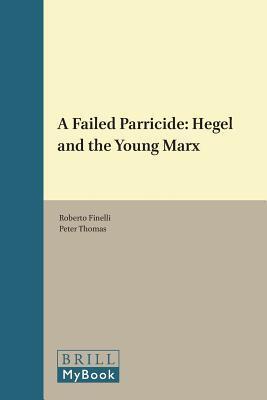
A Failed Parricide: Hegel and the Young Marx
Noch keine Bewertungen
Romance
Format
Gebundene Ausgabe
Seiten
282
Sprache
Englisch
Veröffentlicht
Dec 4, 2015
Verlag
Brill Academic Pub
ISBN-10
9004269789
ISBN-13
9789004269781
Beschreibung
In this insightful exploration, the authors delve into the complex relationship between Hegel's philosophical ideas and Marx's revolutionary thought. They challenge conventional interpretations that solely view Marx as a straightforward successor to Hegel, instead proposing that Marx's break from Hegel represents a profound philosophical rupture. Through rigorous analysis, Finelli and Thomas uncover the nuances in Marx's critique, highlighting how Hegel's influence lingered even as Marx sought to redefine materialism.
The book's narrative unfolds the shifting landscape of ideas during a pivotal period of intellectual history. It examines how Hegel's dialectical method was both a foundation and a foil for Marx, enabling a deeper understanding of the socio-political implications of both thinkers. The dialogue between the two sets the stage for a larger discussion on the evolution of materialist philosophy.
By weaving together philosophical rigor and historical context, the authors invite readers to reconsider Marx's legacy and the philosophical tensions that shaped his theories. Their compelling argument positions this work as a critical examination of how revolutionary thought can be both influenced by and in opposition to its predecessors, shedding light on the ongoing relevance of these ideas in contemporary discourse.
The book's narrative unfolds the shifting landscape of ideas during a pivotal period of intellectual history. It examines how Hegel's dialectical method was both a foundation and a foil for Marx, enabling a deeper understanding of the socio-political implications of both thinkers. The dialogue between the two sets the stage for a larger discussion on the evolution of materialist philosophy.
By weaving together philosophical rigor and historical context, the authors invite readers to reconsider Marx's legacy and the philosophical tensions that shaped his theories. Their compelling argument positions this work as a critical examination of how revolutionary thought can be both influenced by and in opposition to its predecessors, shedding light on the ongoing relevance of these ideas in contemporary discourse.
Rezensionen
Noch keine Rezensionen
Sei der Erste, der dieses Buch rezensiert und deine Gedanken teilt
Erste Rezension hinzufügenLesetagebuch
Keine Lesetagebücher gefunden
Beginne deinen Lese-Fortschritt zu verfolgen, um Log-Einträge hier zu sehen
Füge dein erstes Lesetagebuch hinzuNotizen
Transaktionsprotokoll
Keine Transaktionsprotokolle gefunden
Beginne, deine Buchtransaktionen zu verfolgen, um Log-Einträge hier zu sehen
Fügen Sie Ihr erstes Transaktionsprotokoll hinzu